When I first met Rob back in 2011, we were both working in customer support at Airbnb. At the time, the company was tiny — only about 250 employees and 95,000 property listings.
Quick flash forward to today: Airbnb has over 7,000 employees and 7.7 million listings!
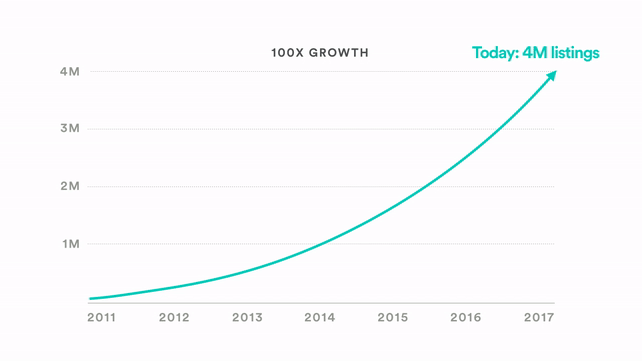
This image only shows us data until 2017, but you get the picture. 😉
Back to our story — Rob's journey is particularly inspiring. He quickly became a founding member of Airbnb's CX Training team and helped build the framework for global training operations.
From there, he went on to lead teams at Momentive.ai (formerly SurveyMonkey), Shortcut, and now Going, where he is the Director of Customer Support.
Having gone through several hiring processes himself, Rob shared some game-changing advice for job seekers.
The Art of Personal Branding in Applications
One of Rob's most memorable hires included the phrase "Turing-approved" in the skills section of their resume — a clever nod to the famous Turing Test that evaluates machine intelligence.
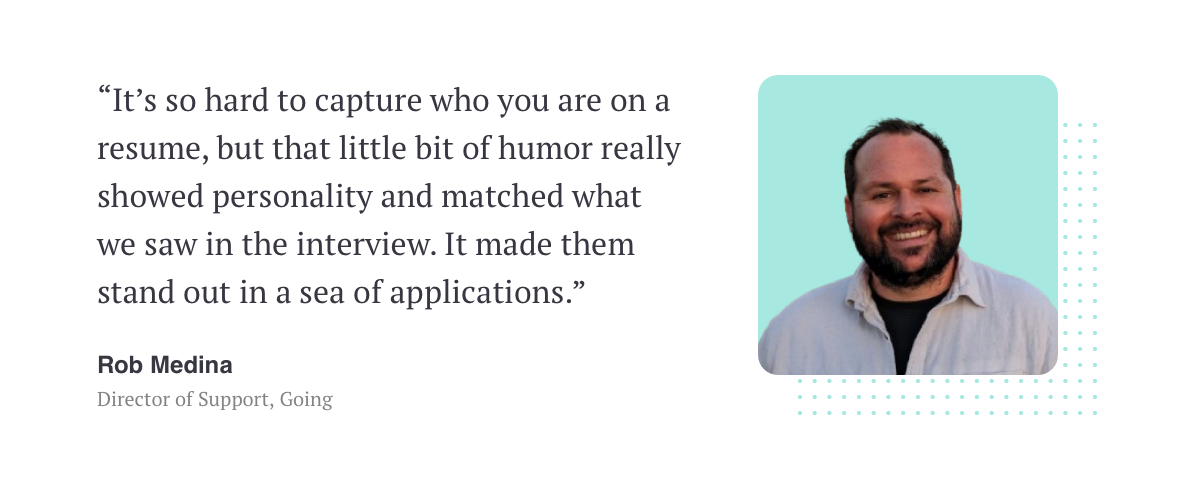
This small touch of humor caught Rob's attention and perfectly matched the candidate's personality during the interview.
Takeaway: While it might feel risky, adding a thoughtful personal touch to your resume can leave a memorable impression. Just make sure it fits with the role and company culture. It’s not about being entertaining — it’s about showing you understand the company and can fit in with its environment.
Do Your Homework (Here's How)
Want to really impress a hiring manager? Rob stressed the importance of research in making your application stand out.
Before even applying, take the time to explore the company’s help center or interact with their customer support team.
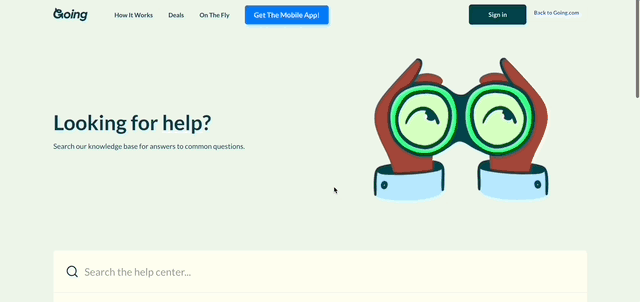
In the example above, we’re trying to figure out which ticketing system Going uses to host their Help Center. A simple right-click to inspect the page shows that Rob’s team is using Zendesk.
This gives you firsthand experience with their tools and processes — something you can strategically mention in your application.
"If you’re applying for a support job, research the company’s tool stack and weave that knowledge into your application. Recruiters often search resumes for specific keywords."
Takeaway: Your resume shows your hard skills, but your research and attention to detail demonstrate your soft skills. That's often where the real differentiation happens.
Yes, AI Is Your Ally
As AI transforms the support industry, Rob highlighted the need to stay adaptable and curious. AI may streamline tasks, but it will never replace the human touch.
“AI isn’t replacing jobs outright, but it’s changing how we work. People who embrace it, learn how to use it, and even challenge its limitations will be the ones who thrive.”
To future-proof your career, Rob suggests:
- Explore how AI can enhance your current skills
- Look for opportunities to improve existing tools and processes
- Stay curious and proactive about learning new technologies
Takeaway: AI is here to stay. Embrace it as a complement to your skillset rather than seeing it as competition.
Get access to expert advice:
Network, But Make It Meaningful
Networking isn't just about collecting contacts — it's about building genuine relationships and creating value for others.
According to Rob, the most effective networking strategy is to become known as someone who advocates for others.
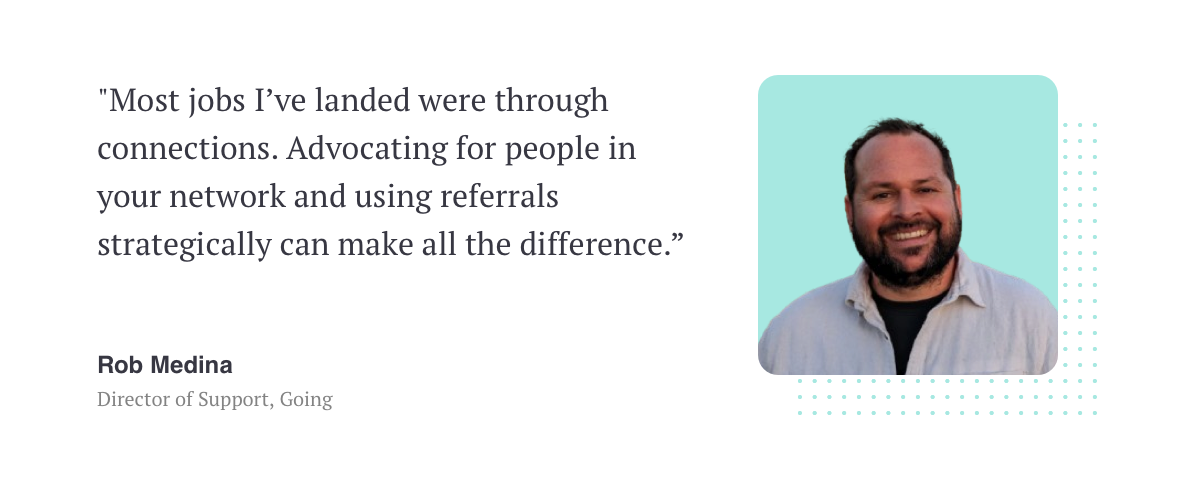
When you help people in your network succeed, they're more likely to think of you when opportunities arise.
Takeaway: Build and nurture your professional network — referrals and recommendations can significantly boost your visibility.
From Support Agent to Director
Rob's journey from support agent to director taught him a crucial lesson about job hunting: authenticity, adaptability, and genuine connections are your most powerful tools.
His parting wisdom is especially relevant in today’s job market:
Protect yourself, advocate for yourself, and lead with authenticity.
Rob’s journey shows that with the right mindset and dedication, we can turn our career aspirations into reality. How we grow and adapt along the way will determine how successful we are.
Rob’s Framework for Success
1️⃣ Research & Preparation
- Test the company's product/service firsthand
- Learn their tools and tech stack
- Connect with current employees (if possible)
2️⃣ Create a Memorable Application
- Add subtle personality touches that match company culture
- Skip the generic cover letter; find a way to differentiate yourself
- Include keywords from your company research
3️⃣ Show You're Future-Ready
- Demonstrate how you embrace new technologies
- Highlight your adaptability and learning mindset
- Build and nurture meaningful professional relationships
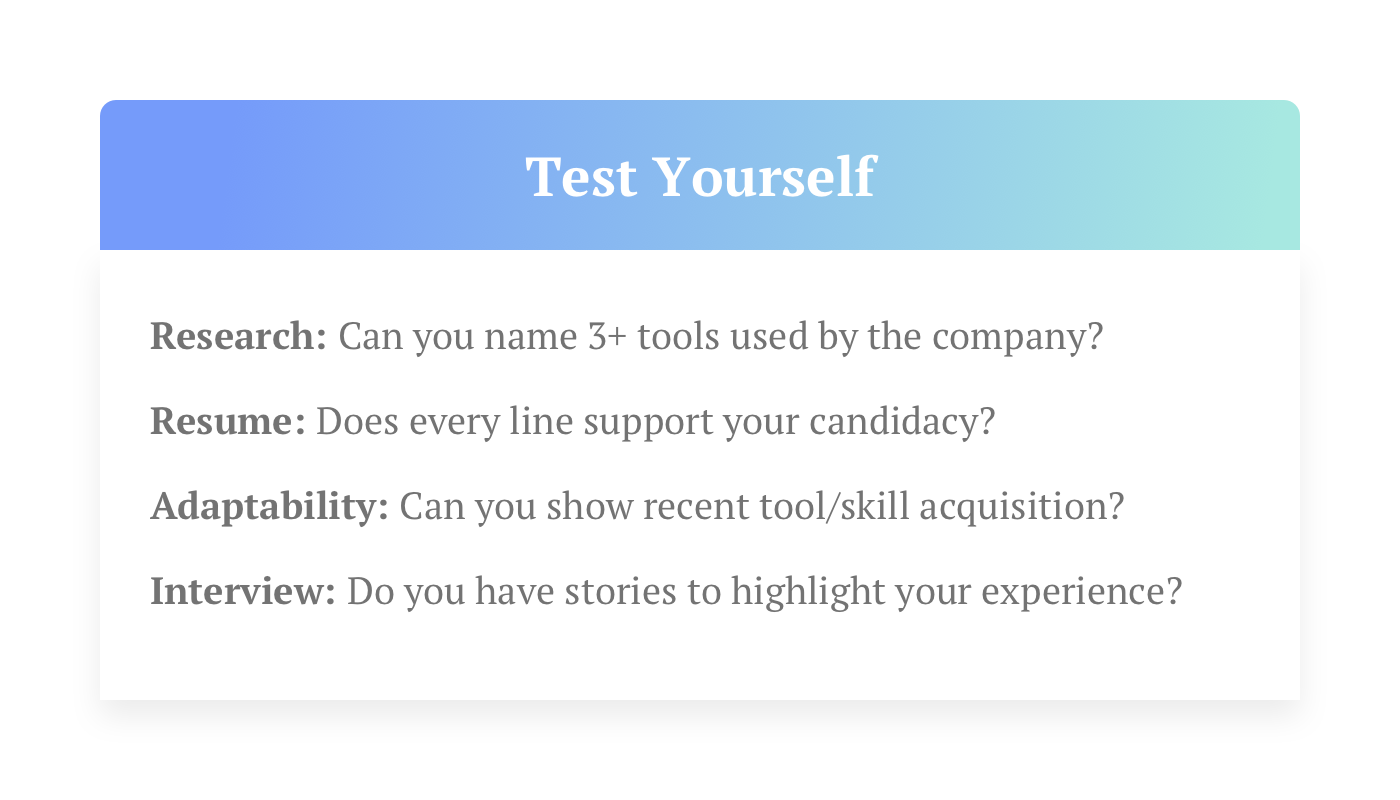
This framework is iterative — adapt it based on results and feedback. The key is to find what works best for you.
📌 Don’t miss our upcoming editions!
Subscribe to get access to advice from these experts:
→ Robert Cabral, Head of Customer Support at Runway
→ Daphne Costa, Global Director of Customer Success at HubSpot
→ Mercer Smith, VP, Community + Education at PartnerHero
→ Kenji Hayward, Senior Director of Customer Support at Front
→ Jess Coppinger, Senior Manager of Customer Support at beehiiv
→ Craig Stoss, VP of Partner and Customer Success at Kodif
→ and more…